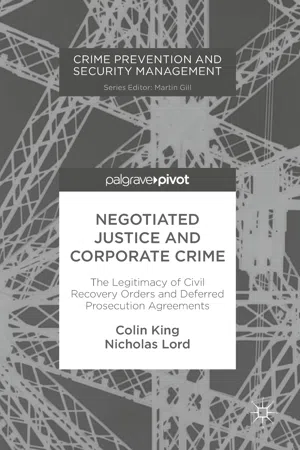Context
Imagine: a drug dealer—someone like Walter White from the series Breaking Bad—walks into a police station and says: ‘I want to confess. I am a drug dealer. I am sorry for my actions, and want to put things right.’ If Walter also provides detailed evidence of the millions of dollars that he has made from his illegal activities, and assuming that there are no issues relating to the admissibility of his confession, for example, it might be expected that Walter would be prosecuted and likely convicted. There might be some leniency shown at the sentencing stage given his cooperation, but even so the likelihood is that Walter would be sentenced to prison. Or, what of a student who, having received a fail mark on a dissertation, attempts to bribe his professor to pass him? That is what 26 year old Yang Li did having received a mark of 37% for his Masters dissertation. After the attempted bribe was rebuffed, and as the student was putting the money back in his bag, a replica handgun loaded with six pellets fell to the floor. Yang Li admitted charges of bribery and possessing an imitation firearm. He was sentenced to 12 months in prison for bribery and 6 months on the firearm charge (to run concurrently) and was also ordered to pay prosecution costs.1 What, though, of corporate wrongdoing: what should happen to a corporate that engages in criminal conduct? If the Managing Director or the Chief Executive Officer of a corporate (or, more likely, a solicitor on behalf of that corporate) were to self-report to the authorities that that corporate had engaged in ‘questionable conduct’, it would be no surprise were a ‘civil settlement’2 agreed between that corporate and the authorities. Indeed, our argument in this book is that such ‘accommodation’ of corporate wrongdoing—rather than criminal prosecution—is increasingly the ‘new normal’.3
Our focus in this book is to explore how wrongdoing on the part of corporates is being ‘differentially enforced’.4 This was a theme central to the seminal work of Edwin Sutherland on white-collar crime; Sutherland argued that those persons of the upper socioeconomic class, in particular business and corporate elites, engage in much criminal behaviour but that these crimes differ principally in the administrative procedures which are used to deal with them (i.e. non-criminal responses).5 For this reason, a strong sense of injustice underpinned his analysis, as the poor were pursued through criminal justice while the affluent, respectable businessperson exploited their privileged positions and power to evade the criminal courts.6 Using the lens of negotiated justice and legitimacy, we examine these enforcement dynamics in the UK in relation to corporate financial crime. More specifically, we scrutinise how civil recovery orders (CROs) under the Proceeds of Crime Act 2002 and deferred prosecution agreements (DPAs) under the Crime and Courts Act 2013 are used in response to corporate wrongdoing.7 Given that there is criminal activity involved, we explore the preference for ‘settlement’ rather than criminal prosecution.
Genesis of the Book
We (the authors of this book) both worked in the same university from 2013 to 2015. During that time (and afterwards) we had a number of conversations on corporate crime, (the lack of) criminal prosecutions, the preference for civil settlements , and proposals for (and ultimately legislation providing for) DPAs. We were intrigued by the preference for negotiation with (and accommodation of) corporates, rather than prosecution. We deliberated how, and why, corporates manage to avoid actual prosecution for what is clearly criminal conduct, and the lack of transparency surrounding deals done behind closed doors. For a long time, we discussed potential collaboration—drawing upon our backgrounds in law and criminology, and particularly our research interests in corporate crime 8 and proceeds of crime.9 When the first DPA was announced in November 2015, we resolved to finally put our thoughts down on paper. After collaborating on a book chapter examining ‘negotiated non-contention’ in the context of transnational corporate bribery,10 we decided to expand our focus—the result being this book.
This book explores a significant, contemporary issue that is fast evolving, namely the use of CROs and DPAs as a response to corporate crime. Indeed, it is certainly timely as we approach the final f...
